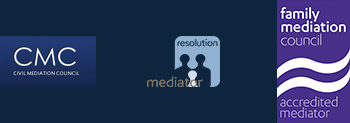Child maintenance is a crucial part of ensuring children receive the financial support they need when their parents are separated. In essence, it is a reasonable contribution to the costs of raising your child. In the UK, paying child maintenance is a legal responsibility and can be arranged in different ways, depending on the parents’ circumstances and preferences.
Child maintenance is money that one parent pays to the other to help cover the costs of raising their children after separation or divorce. It typically goes towards essentials such as food, clothing, housing and education, but there is no definitive list of what it is and is not supposed to cover. The parent who does not live with the child most of the time is usually the one who pays maintenance.
At Hampshire Mediation, we very often discuss issues concerning child maintenance during our family mediation sessions.
Arranging Child Maintenance
There are three main ways to arrange child maintenance in the UK:
- Family-Based Arrangement: Parents agree between themselves on the amount and frequency of payments. This is often the most flexible and cost-effective option, but it requires good communication and mutual trust.
- Through the Child Maintenance Service (CMS): When parents are unable to agree privately, they can use the government-run Child Maintenance Service. The CMS calculates the amount based on the paying parent’s gross weekly income, number of children, and level of shared care.
- Court-Ordered Maintenance: In specific situations, especially for high-income families or when one parent lives abroad, maintenance can be arranged through a court order.
How CMS Calculates Payments
The CMS uses a straightforward formula to work out payments. The basic rate is a percentage of the paying parent’s gross income:
- 12% for one child
- 16% for two children
- 19% for three or more children
These amounts can be reduced if the paying parent has other children in their household or if they have regular overnight contact with the child. Individuals can also use the CMS to figure out what the ‘official’ rate is using the anonymous online calculator.
Collection and Enforcement
The CMS offers two services: “Direct Pay” where parents handle payments themselves, and “Collect and Pay” where the CMS collects the money direct from the paying parent’s employer and sends it to the receiving parent. The latter involves collection fees (20% added to the paying parent’s amount and 4% deducted from the receiving parent).
If payments are missed, the CMS can take enforcement action, such as wage deductions or legal proceedings.
Final Thoughts
Child maintenance is about making sure children continue to thrive even after their parents split. Whether handled privately or through the CMS, the key is to keep the child’s needs at the forefront. For more information, visit the CMS website or seek advice from a family law professional.


